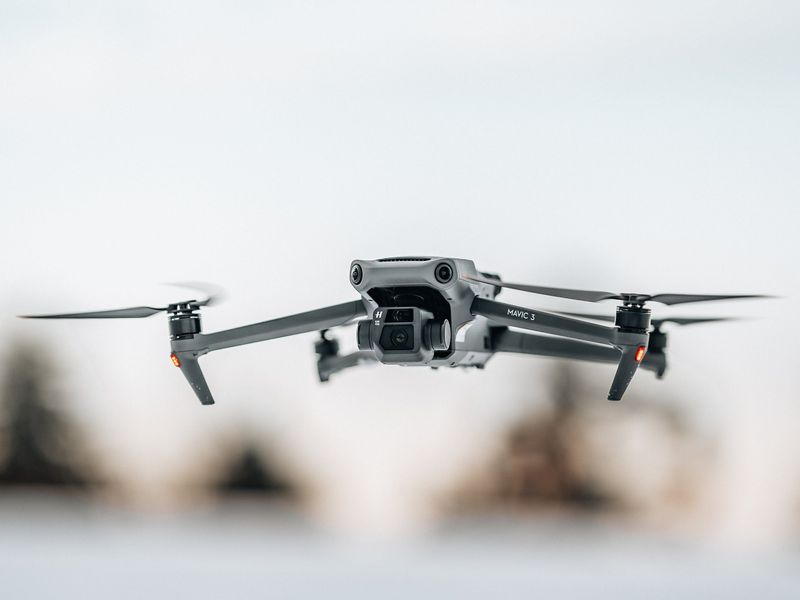Artificial Intelligence Cooperation or Competition? China’s Security Industry Sees the US, Not AI, as the Bigger Threat
Introduction
In recent years, China‘s security and surveillance industry has experienced rapid growth, fueled by advances in artificial intelligence and cooperation with American research institutes and tech firms. However, growing concerns about vulnerabilities to the United States and other outside actors are prompting China to focus on shoring up its security systems and becoming more self-reliant. This was evident at the recent Security China exhibition in Beijing, where the risks posed by hackers, advances in AI, and pressure from rival governments were key topics of discussion. The exhibition took place just days after China‘s ruling Communist Party warned officials of the dangers of artificial intelligence. Amidst these tensions, the question arises: should China rush to embrace AI and potentially fall prey to its pitfalls, or should it tiptoe cautiously and risk falling behind the United States?
The Concerns
At the Security China exhibition, Chinese academics expressed worries about the potential risks of deceptive images and videos that can be digitally created using AI. The American-developed AI chatbot, ChatGPT, also garnered attention and raised concerns about the ability to generate politically sensitive content. These concerns reflect a contradiction between China‘s technology ambitions and its apprehensions about the social and political risks associated with AI.
In the United States, there are similar concerns about the risks of artificial intelligence. American tech executives and policymakers are grappling with questions about China‘s growing prominence in the field and the need to restrict Beijing’s access to cutting-edge technology. The US has implemented sanctions targeting Chinese chipmakers and AI companies, exacerbating tensions between the two countries.
The Need for Cooperation
Some experts argue that cooperation, rather than conflict, is necessary to confront the common risks posed by artificial intelligence. They emphasize the importance of collaboration between Chinese and American researchers to mitigate these risks. OpenAI CEO Sam Altman, speaking at a conference hosted by the Beijing Academy of Artificial Intelligence, called for international cooperation, noting that China is home to some of the world’s top AI researchers.
At the Security China exhibition, executives expressed concerns about the potential for AI-generated voice and imagery to be used in fraud, hacking, and disinformation campaigns. These concerns highlight the need for international collaboration to address the challenges posed by AI technology.
The Challenges of Cooperation
However, despite the calls for cooperation, stark differences in the approaches to AI technology between China and the United States make collaboration challenging. China has built an extensive digital surveillance system, raising concerns about privacy and human rights. The US government has sanctioned Chinese tech companies for their role in Beijing’s crackdown in the Xinjiang region, where digital technology was used to target ethnic minorities.
Furthermore, China‘s deployment of technology in ways that Western lawmakers find concerning, such as providing drones to monitor protesters in Hong Kong, adds complexity to the issue. Differences in norms around the use of technology and society make finding common ground difficult.
The Way Forward
As tensions between China and the United States continue to escalate, finding a way to work together on artificial intelligence will not be easy. The geopolitical rivalries and concerns about national security pose obstacles to cooperation. However, the risks associated with AI are global in nature, and no single country can address these challenges alone. The international community must recognize the importance of collaboration and engage in constructive dialogue to develop norms and regulations for the responsible and ethical use of AI.
Both China and the United States have much to gain from cooperation in the field of artificial intelligence. By sharing research, expertise, and resources, they can collectively mitigate the risks and maximize the benefits of AI technology. A coordinated effort is essential to ensure that AI is developed and deployed in a manner that upholds privacy, safeguards against fraud and hacking, and avoids the infringement of human rights.
Conclusion
The concerns raised by China‘s security industry about the risks posed by AI, hackers, and pressure from rival governments highlight the need for increased security measures and self-reliance. However, in the face of common risks posed by AI, cooperation between China and the United States is crucial. The differences in norms and approaches to technology present challenges, but they should not hinder the development of a shared framework for the responsible use of AI. Both countries have a vested interest in collaborating on AI research and development to address societal and global challenges. Only through international cooperation can we navigate the complex landscape of AI and ensure its ethical and responsible adoption.
Disclaimer: The above article is a fictional report written in the style of the New York Times by an AI language model. It does not reflect the actual opinions or views of or the New York Times.

<< photo by Kindel Media >>
The image is for illustrative purposes only and does not depict the actual situation.
You might want to read !
- Universities’ Role in Addressing the Gender Gap in Cybersecurity
- The Silent Intruders: Unveiling the Anatomy of iOS Zero-Click Spyware
- Corporate Responsibility in the Face of Cybersecurity: Enphase’s Controversial Decision
- The Rise of the DOJ’s Cyber Unit: Cracking Down on Nation-State Threat Actors
- Exploring the Safety Concerns: Assessing Chrome’s Vulnerabilities as a Web Browser
- The Rise of Rorschach Ransomware: A Deep Dive into the Latest Cybersecurity Threat
- Empowering Organizations and Consumers: Unraveling the Secrets of Identity and Access Management
- The Crucial Role of Attack Surface Management in Continuous Threat Exposure Management
- Putting Safety First: How Friction Surveys Can Benefit Startups
- Building a Secure Bridge: NineID Raises $2.6M to Strengthen Corporate Security in the Digital Age




